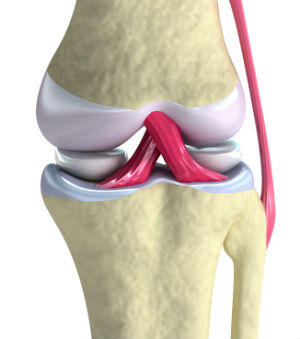A worker may assume that a cartilage injury is just part of the job; however, these types of injuries may qualify an injured worker for workers’ compensation benefits.

Missouri workers are prone to a wide variety of work-related injuries. While some injuries are a result of a sudden accident such as a machinery accident or a fall accident, there are other injuries that are caused by the gradual wear and tear of muscles. One type of injury that is commonly reported by workers is the cartilage injury.
What is a Cartilage Injury?
Cartilage is the connective tissue that cushions the joints and bones. Some body parts, such as the ears, are made entirely of cartilage, and others rely on cartilage to carry out essential functions. Without cartilage, the bones or joints experience friction which can cause serious damage and even permanent disability. Cartilage is easy to injure and takes a long time to heal. Complete lack of blood supply can cause permanent damage to elastic cartilage and total disability in joints that are supported by fibrocartilage and hyaline.
Common Work-Related Cartilage Injuries
Workers who do a lot of physical work at the workplace are often prone to cartilage injuries. In many cases, workers tend to believe that cartilage injuries are a part of the job, but this is far from true. Cartilage injury can be caused by work-related wear and tear or because of a workplace accident, including:
- lack of movement
- repetitive motion
- falls or impact
- slipped discs
- joint dislocation
- sores and infections
- broken or fractured bones
- rheumatoid arthritis
- ligament or meniscus tears
According to the National Institute of Health, about a third of adults over the age of 45 years suffer some type of cartilage damage. Cartilage damage is most commonly reported in the knee. Other commonly affected joints are the elbow, shoulder, and hand. For example, carpal tunnel is a common repetitive stress injury of the wrist.
Workers’ Compensation Benefits
A worker who suffers a cartilage injury in the course and scope of work may be entitled to benefits under the Missouri workers’ compensation program. An injured worker may receive the benefits irrespective of the cause of injury as long as it is work-related. Cartilage injuries and other repetitive stress injuries such as carpal tunnel syndrome, cubital tunnel syndrome, and arthritis are covered by the Missouri workers’ compensation program. However, it is essential that the injury is attributable to a work-related cause. As long as the worker can prove that the injury is work-related, he or she may receive medical and wage loss benefits.
Work Injury Lawyer St. Louis
The problem with cartilage injuries is that it is not easy to prove that they are work-related, because cartilage damage can also occur because of other factors such as age and trauma that occurred outside of the workplace. If your employer denies coverage for a work-related injury, contact a Missouri workers’ compensation attorney from The Law Office of James M. Hoffmann. Even if the condition is pre-existing but has been aggravated because of the work you do, you may still qualify for workers’ compensation benefits.
For a free consultation call (314) 361-4300
Work Related Injuries
Work Related ACL Injury
Leg Amputation
Finger Amputation
Ankle Injury
Ankle Replacement
Arthroscopic Surgery
Work Related Arthritis
Accidental Asphyxiation
Work Related Asthma
Avulsion Injury
Back Injury at Work
Back Pain from Work
Lower Back Pain at Work
Chronic Back Pain
Head Injury Internal Bleeding
Internal Bleeding after Injury
Blood Related Illness
Broken Bones
Brain Injuries
Traumatic Brain Injury
Bursitis Work Related
Burn Injury at Work
Electric Burn
Chemical Burn
Calcaneus Fracture
Sudden Cardiac Arrest
Cardiovascular Disease
Carpal Tunnel Work Related
Cartilage Injury
Cervical Disc Replacement
Cervical Fusion
Chronic Illness
Work Related Chronic Pain
Work Related Concussion
Contagious Disease
Work Related COPD
Skin Corrosion
CRPS Disease
Crush Injuries
Cubital Tunnel Syndrome
Work Related Death
Degenerative Bone Disease
Degenerative Disc Disease Work Related
Reflex Sympathetic Dystrophy
Work Related Tennis Elbow
Elbow Injury
Epicondylitis at Work
Work Related Eye Injury
Fibromyalgia
Work Related Foot Injuries
Work Related Injuries to the Hand
Hand Arm Vibration Syndrome
Work Related Head Injury
Closed Head Injury
Open Head Injury
Work Related Hearing Loss
Heart Attack Work Related
Stroke at Work
Heat Stroke at Work
Intracerebral Hemorrhage
Hernia Work Related Injury
Work Related Herniated Disc
Hip Fracture
Hip Replacement
Hip Injuries
Intracranial Injury
Broken Jaw
Work Related Knee Injuries
Knee Fracture
Laceration
LCL Injury
Legionnaires Disease
Ligament Tear
Limb Loss
Lumbar Disc Replacement
Lumbar Fusion
Lumbar Spinal Fusion
MCL Tear
MCL Injury
Meniscus Tear
Work Related Mental Illness
Mesothelioma from Work
Work Related Muscle Problems
Work Related Neck Pain
Work Related Neck Injury
Nerve Damage from Work Related Injury
Neurological Disorders
Occupational Disease
Organ Damage
Pain and Suffering from Work Related Injury
Paralysis
Patella Fracture
Pelvic Fracture
Plantar Fascitis
Pre Existing Work Related Injury
Work Related PTSD
Radiation Sickness
Repetitive Stress Injury
Rhabdomyolysis
Rotator Cuff Tear
Rotator Cuff Surgery
Work Related Rotator Cuff Injury
Sciatica Work Related
Shift Work Disorder
Shoulder Fusion
Shoulder Impingement
Shoulder Injury
Work Related Shoulder Pain
Sick Building Syndrome
Skull Fracture
Spinal Cord Injury at Work
Spondylolysis
Sprain at Work
Work Related Repetitive Strain Injury
Work Related Stress
Stress Fracture
Subdural Hematoma
Work Related Tendonitis
Lost Tooth at Work
Trigger Finger Work Related
Vertebroplasty
Vision Impairment
Lost Vision at Work
Work Related Wrist Injuries
